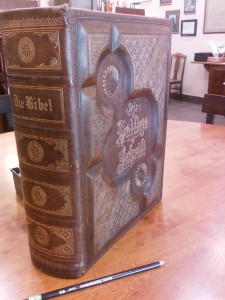The series has been out for quite some time, but I’m a Johnny-come-lately to A Song of Fire and Ice, the epic fantasy series by George R. R. Martin. I’ve previously made mention here of Mr. Martin’s work, but at the risk of beating too long at the drum, I feel compelled to point out what an excellent series he has created.
I’ve also mentioned before that I avoid fantasy and science fiction most of the time, mainly. Here are examples why, from A Clash of Kings, book two in the series:
Hrakkar: from context, some kind of fur-bearing animal.
Xaro Xhoan Daxos: a merchant prince from
Qarth: home of Xaro Xhoan Daxos.
Shierak qiya: the Dothraki (a nomadic desert people) name for the passing comet.
Those names and words that have apostrophes and dashes are abundant as well. Given that most of the characters in the series are presumed to be illiterate (more than one mention is made of an inability to read) as it would have been in medieval times, the odd spellings are only exotic to the reader. Folks in the kingdom of Westeros would not have bothered with spellings, and as with spellings of that era, they would have been based on their oral rendition. Qarth would have been written as Cart or Carth (depending on Mr. Martin’s intention). Mr. Daxos might have written his given name as Zaro or Zarro. Maybe Exaro if the first letter shuns the Zee sound.
My point is, a glossary and pronunciation guide might help, but then the reading of the series might take on the aspect of work.
Still, even with the regular head-knocking spelling irregularities, like Ser – for Sir – the story is as intricate as a tapestry and just as tightly woven. One of the still-shocking realizations for me is Mr. Martin’s ability to write off his protagonists. Many authors admit to growing attached to their familiar characters and fall into the “happily ever after” trap.
Don’t assume that any character – major or minor – introduced at any stage, is going to make it to the finish line. Mr. Martin has the ability to cleave a player from the story without hesitation or forewarning much in the manner his antagonists use their broadswords.
A particular scene in book three is breathtaking in the swiftness in which the story changes course, when a particularly sympathetic family endures yet another tragedy. The passage is as unexpected to readers as the plot twist is to the book’s characters.
Not having seen the continuing episodes of the HBO series based on the books, I can’t say whether the producers of the television version have been less brutal to the cast of characters.
Where many authors and filmmakers go so far as to engage test audiences to determine the most widely-accepted outcomes and endings, George R. R. Martin possesses the confidence to jump into the dark water and ask us to come swimming with him amongst the beasts of the deep.
Who knows what may happen should we take a leap?


